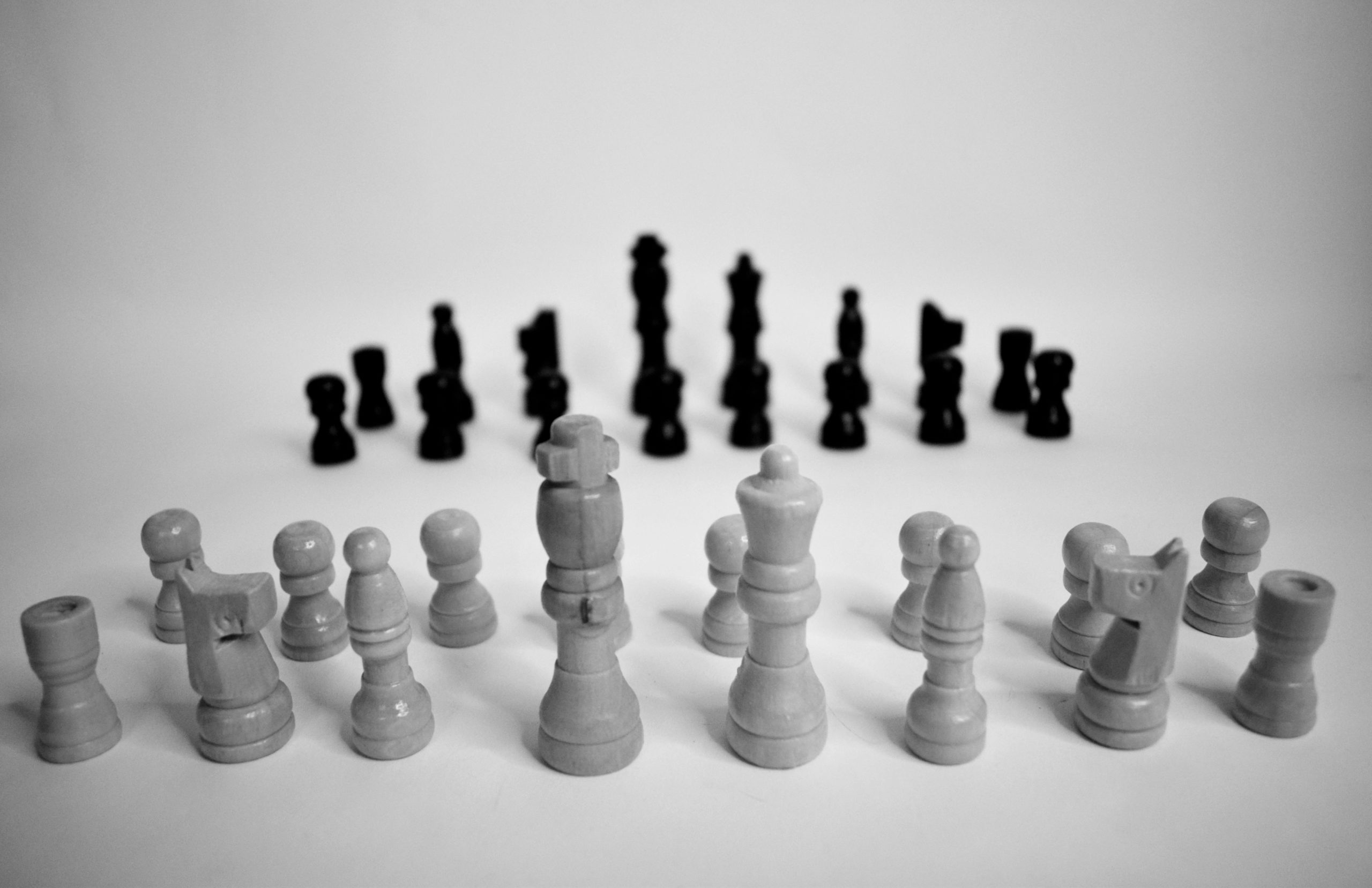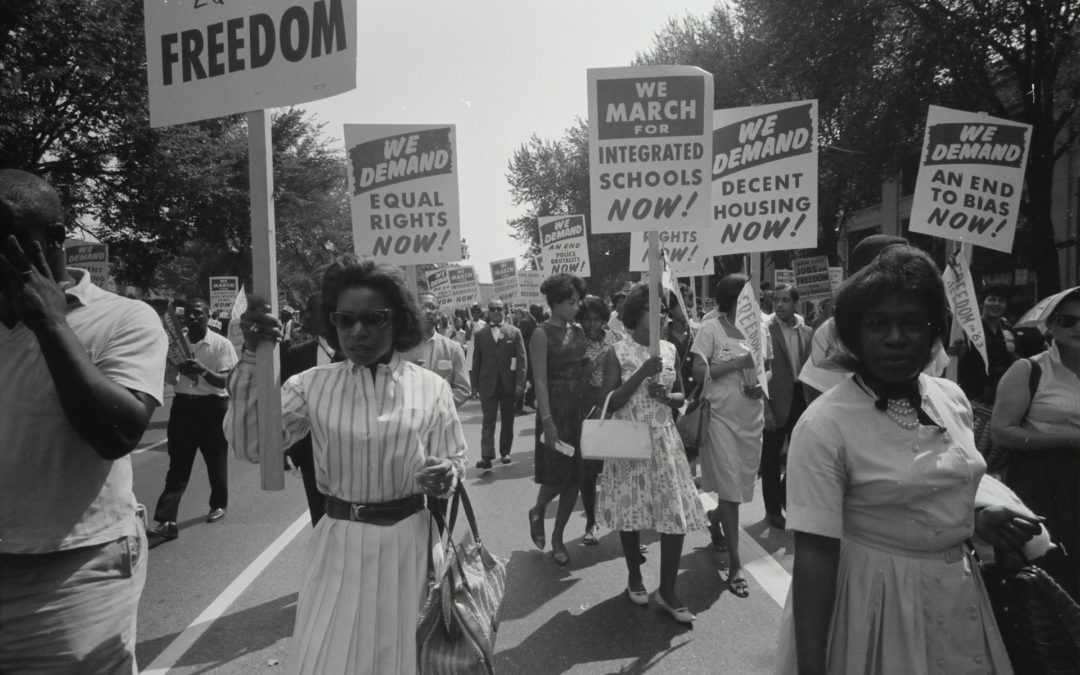I was a young child when Black History Month came to national consciousness. I remember my dad using the opportunity to teach me, barely in school, about the history of Black achievement and leadership in this country. As an Iowan, I learned about George Washington Carver’s scientific achievements and Alexander Clark’s work creating the first integrated schools in the country. As sports fans, we talked about the activism of Bill Russell and Muhammad Ali. One of my dad’s heroes was Dr. Martin Luther King, Jr., and he would regularly re-read or listen to Dr. King’s sermons and speeches, urging me to do the same. He loved to remind me of the radical nature of what Dr. King stood for and that it was in looking beyond the posterized quotes that you gained true lessons about the pursuit of justice and methods of nonviolent action via civil disobedience.
This year, I’ve been reflecting on Dr. King’s powerful Letter from a Birmingham Jail, a commentary firmly situated in the context of the segregation and racism in 1960s America, yet simultaneously ageless in its application today. Revisiting this text feels timely in the face of stories like the recent New York Times piece about the exhaustion of being part of “the resistance.” In his letter, King speaks to the exhaustions and frustrations that come in the pursuit of justice, lessons I draw on today.
In particular, as a white leader, I find this piece powerful because it directly speaks to his white contemporaries in church leadership. Although I do not consider myself a “white moderate” (his particular target), I do often find myself convicted by the description of such a person:
who is more devoted to “order” than to justice; who prefers a negative peace which is the absence of tension to a positive peace which is the presence of justice; who constantly says: “I agree with you in the goal you seek, but I cannot agree with your methods of direct action”; who paternalistically believes he can set the timetable for another man’s freedom; who lives by a mythical concept of time and who constantly advises the Negro to wait for a “more convenient season.” Shallow understanding from people of good will is more frustrating than absolute misunderstanding from people of ill will.

One of my favorite songwriters, Dar Williams, describes Iowans like me as people who “never mean to bother; we don’t like to make our passions other people’s concerns.” If you consider a moderate not in a political sense but rather as someone who prefers a lack of tension – I have to admit there are ways that I fit the bill.
Unfortunately, the time that we are in requires all of us who seek justice to lean into tension. In many ways, this country has never been closer to a just society than we are today. Everywhere we are shattering norms designed to keep us in boxes that benefit white patriarchal capitalism. Those victories naturally create tension, as Dr. King reminds us that “freedom is never voluntarily given by the oppressor; it must be demanded by the oppressed.” I often remind my team that systems were built to get the outcomes they get; so dismantling those systems is, by definition, a creation of tension as all involved learn to build and understand the new approach.
In other words: there can be no change without tension. So how do we deal with that tension? And in particular, how do white leaders, particularly those who hold multiple privileges and who want to be part of the movement for justice, respond?
1. Listen to those who seek justice for themselves. At Believe in Students, our piece of justice-seeking focuses on ensuring that all college students have what they need to successfully complete the education they desire. As we pursue this goal, we place students at the center of every conversation. Rather than being leaders who want to set a timetable for someone else’s freedom, we listen and make our best efforts to bring any power we hold to support their own calls for what they need.
2. Help those accustomed to the old way of things to navigate into the new space. Let’s think of tension as a muscle cramp. It hurts! But the best trainers don’t stand over you saying, “Oh no, a cramp! Doesn’t it hurt? Don’t you wish you weren’t having a cramp right now?” Nor do they dismiss the pain and immobilization that comes with a cramp, telling you to just get over it. Rather: they encourage you to breathe. They give you water. They help you massage it out. They stay with you until it subsides. Today, I often feel my best role is to help others of privilege understand the waters we are swimming in and find buoys of comfort to help us get through.
3. Keep justice as your north star. The tensions arising in our country today can feel insurmountable at times. It is easy to allow our eyes to be drawn away from our goals and onto tactics, situations, and conversations that are merely trees in a forest – they’re in our way, and we have to acknowledge them, but they’re not the goal. Dr. King’s letter is a master class in drawing readers out of the particular circumstances and happenings of the day, back to the overall goal. His prophetic voice in this piece is as powerful today as it was in 1963.
As Black History Month comes to a close, I draw on the storied legacy not only of Dr. King, but of Black leaders, named and unnamed, throughout our nation’s history who have continued the pursuit of justice over centuries. Their commitment to seeking a more perfect union inspires me to remember that while we are living in a particularly tense moment in our nation’s history, we are closer than ever to true justice for all. We cannot flag or fold. We cannot allow a preference for an absence of tension to stand in the way of the goals we seek. We must actively resist the “paralyzing chains of conformity” in our constant pursuit of a just and equitable world. And we find strength in doing it together.

